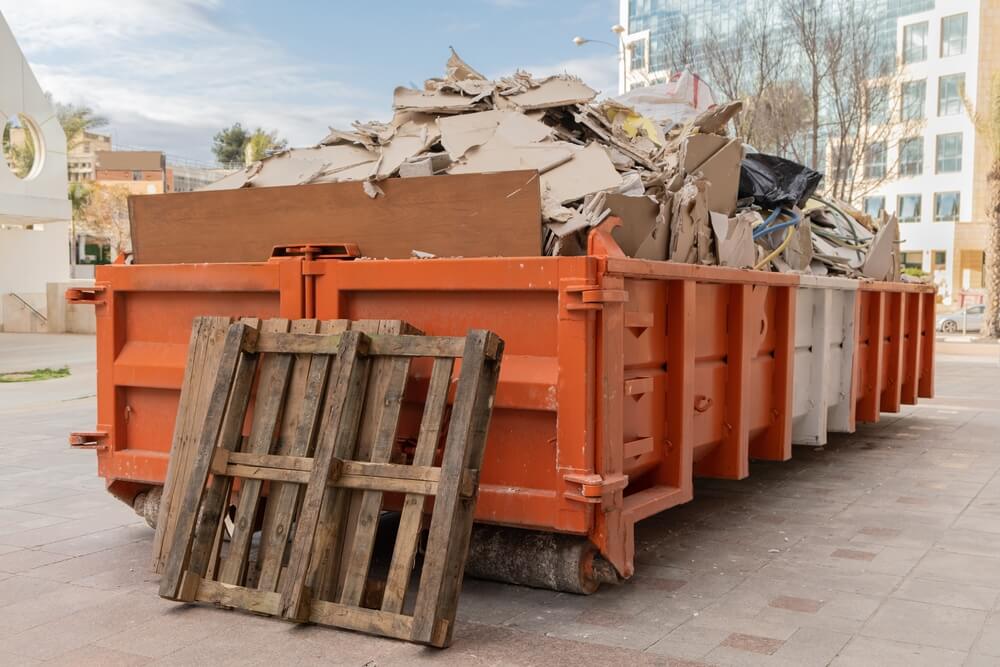Waste is an inevitable product of business operations. Whether you’re running a manufacturing plant, a retail store, or a tech startup, waste generation is a part of daily activities. It comes in many forms, from packaging materials and office supplies to food scraps and electronic waste. While not all waste is harmful, improper disposal can lead to significant problems for businesses, the environment, and public health.
Business waste can include hazardous materials such as chemicals, batteries, and electronic devices. These materials pose serious risks if not handled and disposed of correctly. Offensive waste is that which isn’t harmful but is unpleasant in odour or appearance (such as hygiene, sanitary and PPE products). The safety of people and the protection of the environment should be top priorities for any business. Ensuring proper waste management is not just about compliance; it’s about being a responsible and sustainable entity.
Proper waste disposal also brings economic benefits. Businesses can reduce costs through recycling and waste reduction strategies. Instead of paying hefty fines or spending on expensive cleanups, companies can invest in sustainable practices that save money in the long run. Additionally, some businesses can even generate revenue by selling recyclable materials, turning waste into a valuable resource.

Moreover, a commitment to proper waste disposal enhances a company’s reputation. In today’s market, consumers and investors are increasingly looking for environmentally responsible companies. Businesses that demonstrate a strong commitment to sustainability can attract more customers and investors, building a positive brand image. A good reputation in waste management can foster stronger community relations and customer loyalty.
As a warning from history, take the example of Dupont. In the 1980s it was revealed that the company had been improperly disposing of perfluorooctanoic acid (PFOA) at its Teflon plant in Parkersburg, West Virginia. Dupont had been disposing of PFOA in a nearby landfill that the company had stated would only be used for non-hazardous materials such as ash and scrap metal. PFOA entered groundwater and the Ohio River. From there it entered the drinking water across six local districts. The population of the affected area was 80,000 and this contamination was linked to thousands of extra cancer, colitis, thyroid disease and hypertension cases over the following decades.
Dupont was sued by the Environmental Protection Agency, which resulted in a $16.5 million dollar penalty and ongoing requirements for Dupont to rectify the damage and purify water around Parkersburg. Over 3000 personal injury cases were also brought, leading to settlements totalling hundreds of millions of dollars. The drawn-out case caused severe damage to Dupont’s reputation, hard-won over previous decades as the company shifted from its earlier years as a supplier of armaments and chemical weapons to the military to a provider of modern materials that made everyday life better for ordinary people – Teflon, Nylon, Cellophane and vinyl.
Operational efficiency is another key benefit of proper waste disposal. Implementing effective waste management practices can streamline business processes, making them more efficient and sustainable. By identifying and reducing waste, companies can optimize resource use and improve their overall operational efficiency. This not only benefits the bottom line but also contributes to a more sustainable business model.
Lastly, but absolutely not least, proper waste disposal is essential for risk management. Hazardous waste poses significant risks if not properly managed. Proper disposal practices help mitigate these risks, reducing the likelihood of accidents and health hazards. This, in turn, minimizes legal liabilities and the associated costs, providing a safer environment for employees and the community.
Final Thoughts
Proper waste disposal is crucial for businesses. It ensures compliance with regulations, protects public health, enhances corporate reputation, brings economic benefits, improves operational efficiency, and mitigates risks. As businesses continue to grow and evolve, it is imperative to prioritize the safety of people and the protection of the environment. By doing so, businesses not only fulfill their legal obligations but also contribute to a more sustainable and prosperous future.
